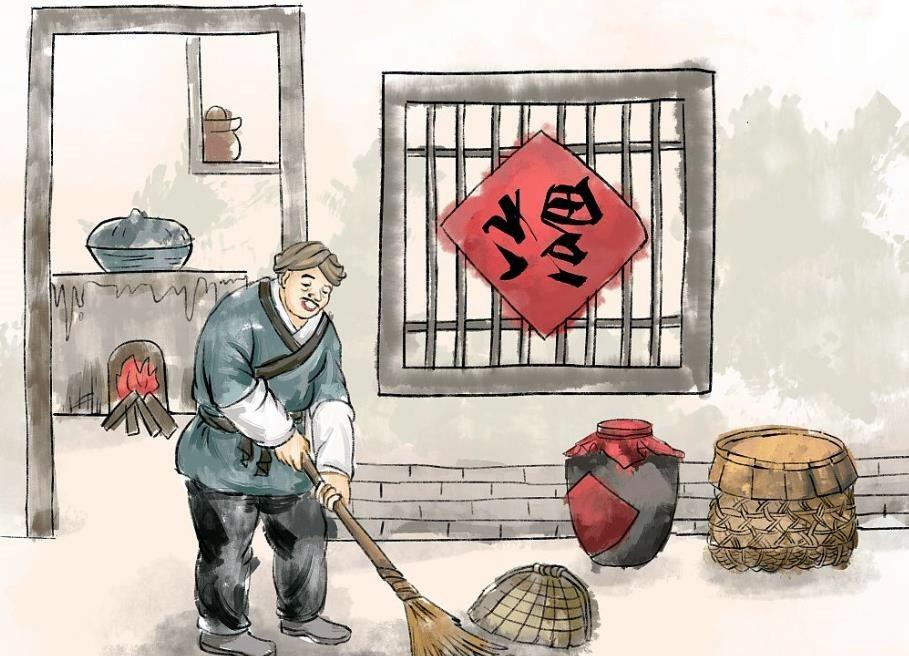There are not many days left before the Year of the Tiger, and after entering the Waxing Moon, every household must begin to prepare for the Spring Festival. Especially after the eighth day of Lapa, the preparations before the Spring Festival began. Cleaning the hygiene of the home is the most important link, and the folk have the saying that "the waxing moon does not sweep the dust, and the plague god will be invited in the coming year".
The reason why people have the saying that "the waxing moon does not sweep the dust, and the plague god will be invited in the coming year" is because the ancestors have long known that filth is not good for people's health.
In the folklore of the Waxing Moon, it is often cleaned up on the twenty-fourth day of the Waxing Moon. Folk ancestors believe that "dust" and "Chen" are harmonic sounds, so cleaning means "dust removal and new cloth". There is also the beautiful meaning of sweeping away "obscurity" and "poor gas".

Although the ancestors will be cleaned up on the 24th day of the Waxing Moon, with the development of the times, folk customs are gradually changing. The cleaning does not have to be on the 24th of the waxing moon, and many people will arrange the cleaning time according to their free time.
Although the time of the cleaning is changing, the folk customs about the cleaning are still circulating in the market. For example, in some traditional places, the elderly will have the "waxing moon sweeping the family three immovable" exquisite.
So, what does the old ancestor mean by "three immobilities"?
The old ancestor believes that when the moon sweeps the house, "the bed does not move"!
The cleaning in the waxing moon will inevitably be carefully cleaned up, combing through the places that we usually can't take care of, and under the bed is one of them.
When people clean the bottom of the bed, there may be a mobile bed, and the main purpose is to clean up the dust that has accumulated under the bed for many years. After moving away, some people will find that the bed will be better in a different place, so they will move the bed.
But in fact, in the eyes of some old ancestors of the people, when cleaning in the waxing moon, it is not recommended to make a big fuss, especially in places like beds, or try to be proper and stable, do not easily replace beds.
The second immovable thing that the ancestors thought was "the door does not move."
The door is also very important in the concept of the ancestors, no less important than the bed.
The reason why there is such a concept is because in ancient times, the first role of the door was to defend and travel, so his existence was to guard people's safety. People stick to the door god, set up a wall, etc., all have the meaning of guarding safety, and it is also an extension of the door.
The "door does not move" said by the ancestors is not to clean the door, but not to change the door, to break the door and so on.
If it's just cleanup, that's what has to be done. And what is not necessary is to replace the door, build a new wall, etc., which is what the ancestors called "the door does not move".
The last one of the so-called "three immobilities" of the old ancestors is that the shrine does not move.
Many people will worship some bodhisattvas, gods of wealth, stove kings, etc. in their homes, which have nothing to do with faith, but are just a way of praying for blessings in the folk. It's like people wear red every nine years and the year of life, just like the New Year's Day to paste the Spring Festival and so on.
Why is it said that the shrine cannot be moved? In the traditional customs of the ancestors, the gods and Buddhas in the waxing moon are to return to the heavens, and when it comes to the first month, they will bring us back the blessings and good luck of the new year. The old patriarch was worried that once the gods were replaced, the gods who brought blessings to the family would not find a home, so they would leave.
Of course, whether the bed does not move, the door does not move, or the shrine does not move, it is a custom of the ancestors of the people, but it is just a psychological sustenance for people to pray for a healthy and smooth life, and has no practical significance. Therefore, we must look at such customs and habits in an inclusive manner, and there is no need to deliberately abide by them or deliberately break them. Everything should be based on its own needs, and if it really needs to be moved, there is no need to stubbornly comply.
The wisdom of folk ancestors is often summed up based on their own experience, even if it is a bit one-sided and subjective, but we still have to give the greatest respect to the wisdom and wisdom of the ancestors, as well as our folklore.